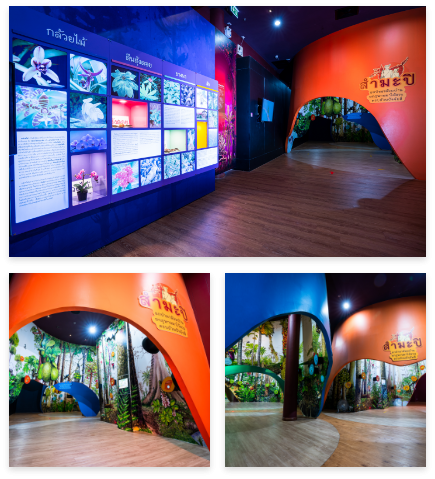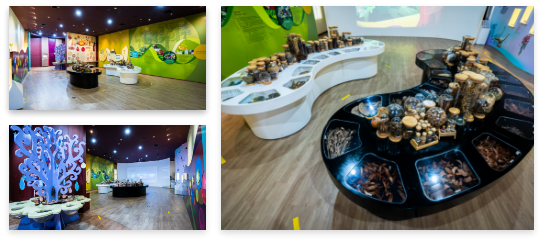
The Amazing Genetics Museum (Chaloem Phrakiat Building 3)

A place to learn about various plant species and their genetics in order to assess their current and potential significance for environmental conservation. Conserve our natural resources by following the lead of His Majesty King Bhumibol Adulyadej the Great and Her Royal Highness Princess Maha Chakri Srindhorn. The Amazing Genetics Museum was founded to honour HRH Princess Maha Chakri Sirindhorn and to express gratitude for her unflinching efforts to advance the Plant Genetics Conservation Project. In 2012, HRH Princess Maha Chakri Sirindhorn authorized the Golden Jubilee Museum of Agriculture Office (GOJUMAO) to promote awareness and understanding of plant genetic conservation. Increase knowledge among young people of the environmental significance of plant genetics, which is critical for Thailand's natural resource conservation. The variety of plant cultivars provided a strong foundation for the growth and strengthening of regional agriculture and food security.
1) Princess Maha Chakri Sirindhorn is a conservationist.
HM King Bhumibol Adulyadej the Great has been an advocate for the conservation of plants and natural resources since his childhood. THE RSPG Foundation, formerly known as The Royal Initiative Plant Genetic Conservation Project, is committed to the conservation of plant genetic resources such as plants, soil, rocks, minerals, and fungi. Diverse ethnic groups' traditions and ways of life were considered important enough to be protected. Both of these factors are interdependent and contribute to social advancement.


2) Genetics: Life's architect.
The genetic potential of the seeds will begin to take shape. Genetic diversity is essential for life to exist. Not only does plant genetics generate life, but it also generates the four factors necessary for life to survive. All of these are results of living genetics: food, medicine, clothing, and shelter. The sustainable collaboration of preserving pant genetics ensures a stable food supply and self-sufficiency.
3) Inheritance dependent on ecosystems.
Thailand is home to over 30,000 distinct plant genetics, all of which produce seeds. Numerous seeds are found in various trees, ecosystems, and areas. When a forest shrinks, the seeds inside become scarce or die. A lack of choices is synonymous with a loss of liberty and security. Rural residents who are plant enthusiasts look for and gather seeds from the forest in order for them to flourish and reproduce in the community in harmony with the local ecosystem.



4) Protecting genetic plant species.
The four learning processes of planting, consumption, selection and species development represent the approach to plant genetic conservation. A game will be played at each level to educate and acquaint participants with different plant genetics.


 en
en th
th ch
ch

